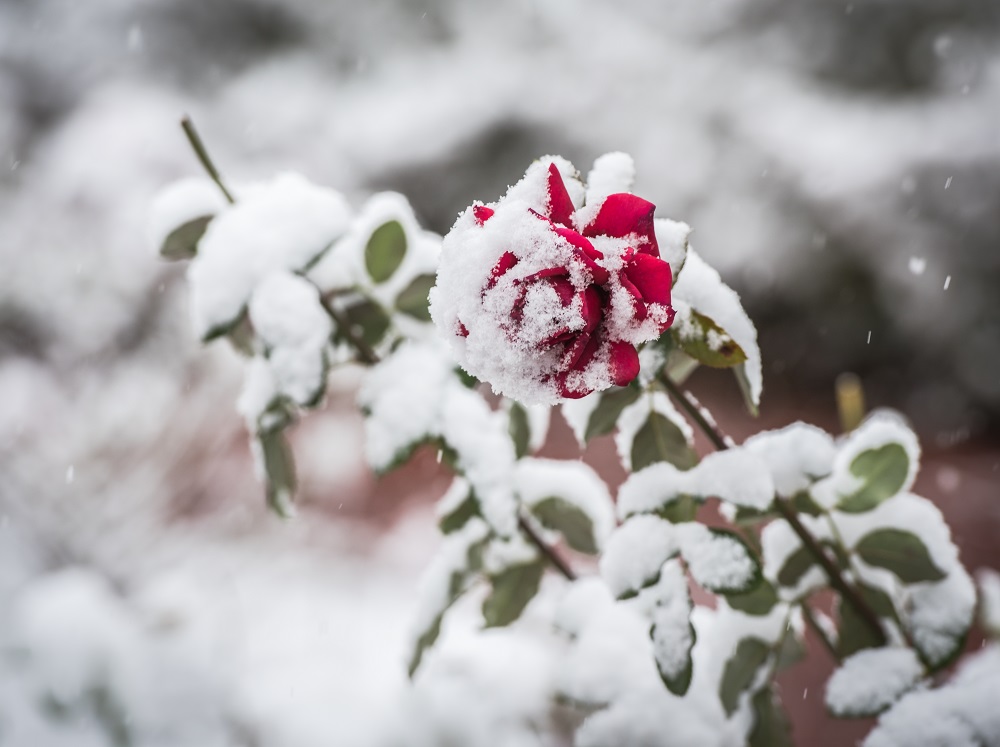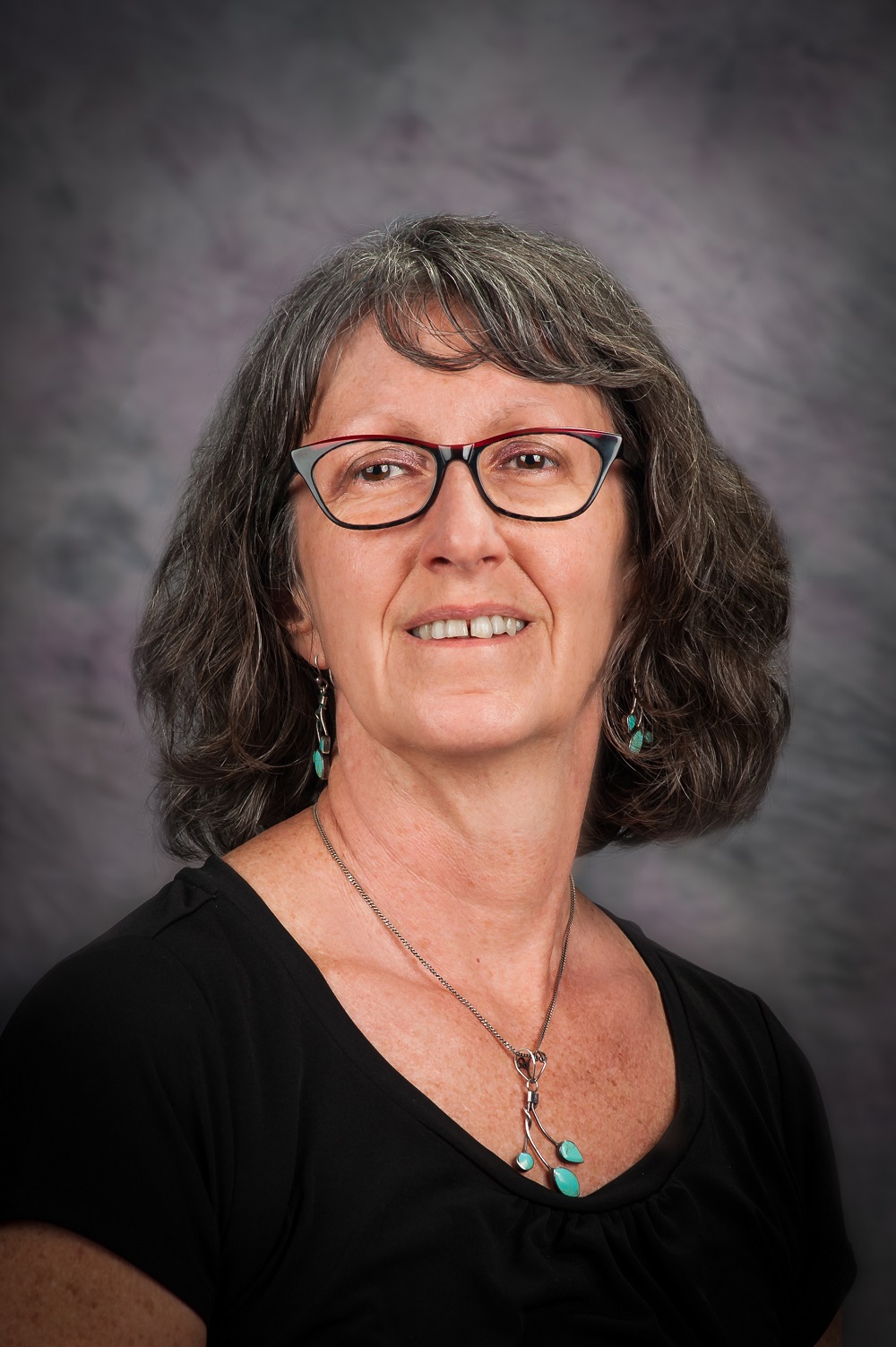K-State Current - February 2, 2022
K-State Current is a weekly news update for the Kansas Board of Regents to apprise the Regents on a few of the many successes and achievements made by K-State faculty, staff and students.

K-State News
 Kansas State University's online programs were recognized for excellence in 12 categories in U.S. News & World Report's 2022 Best Online Programs Rankings.
Kansas State University's online programs were recognized for excellence in 12 categories in U.S. News & World Report's 2022 Best Online Programs Rankings.
This year, U.S. News & World Report evaluated 1,700 online bachelor's and master's programs to determine its rankings, analyzing program effectiveness in a variety of areas, including student engagement, admissions selectivity, peer reputation, faculty credentials and training, and student services and technology. Online programs are also ranked for how effectively they serve veterans.
K-State Online saw improvements in the rankings in several categories in 2022. Receiving the highest boost was the online master's programs in education, which jumped from No. 46 to No. 24 nationally and from No. 14 to No. 8 for veterans. Within the suite of education programs, students can choose from 17 master's degree options.
The online Professional Master's in Business Administration also saw an improvement, earning No. 24 nationally and No. 15 for veterans, the highest rankings since the program's launch in 2013. The suite of nine online master's programs in engineering went from No. 34 to No. 30 nationally, while the online bachelor's programs moved up one point to No. 47 nationally and three points to No. 29 for veterans. K-State currently offers 18 bachelor's degree options online.
"Kansas State University continuously strives to provide the best online experience for its students, and we are pleased to see this reflected in the rankings," said Karen Pedersen, dean of K-State Global Campus, the administrative arm for the university's online programs. "We are especially proud that the online bachelor's degree programs once again received the highest ranking of any school in Kansas. Our faculty and staff are committed to providing students with a world-class education regardless of where students live."
The full list of K-State's U.S. News & World Report program rankings for 2022 include:
• Online bachelor's programs — No. 47 nationally, No. 29 for veterans.
• Online bachelor's programs in business — No. 30 nationally.
• Online MBA programs — No. 24 nationally, No. 15 for veterans.
• Online master's programs in business (excluding MBA) — No. 49 nationally.
• Online master's in education — No. 24 nationally, No. 8 for veterans.
• Online master's in curriculum and instruction — No. 17 nationally.
• Online master's in special education — No. 12 nationally.
• Online master's in engineering — No. 30 nationally, No. 20 for veterans.
For information about degree programs offered through K-State Online, visit online.k-state.edu.

K-State lab supports research that has boosted disease, pest resistance in Ethiopian farm fields
Scientists with the Feed the Future Innovation Lab for Collaborative Research on Sorghum and Millet (SMIL) have developed a sorghum variety they say will provide natural resistance to pathogens and pests that have crippled the crop in humid, lowland areas of western Ethiopia.
Their research is reported in the Jan. 9 issue of The Plant Cell, a journal of the American Society of Plant Biologists.
Timothy Dalton, director of SMIL – based at Kansas State University – said the researchers’ work will “serve the broader sorghum development community and is a flagship global good, public characteristic of the U.S. land grant mission.”
The K-State lab led by Dalton funded work in Ethiopia and West Africa to map genes and explore more than 2,000 pieces of germplasm in numerous field trials spanning several years.
“The new variety, called Merera, has multiple benefits, including resistance to pathogens and birds, and it yields better than current varieties that Ethiopian farmers have,” said Tesfaye Mengiste, a professor of botany and plant pathology at Purdue University, and the principal investigator for the research.
Mengiste said Merera has shown resistance to Anthracnose, a devastating fungal disease that attacks all parts of the plant – leaves, stalk and head – leaving almost nothing to be used for food (sorghum’s primary use in Africa), biofuels or animal feed (the primary use of sorghum in the United States).
“With these improved traits and yield potential, it can mean a better livelihood for (farmers),” Mengiste said.
A newly discovered gene, named Anthracnose Resistance Gene1, or ARG1, is unique, according to Mengiste.
“Although some natural resistance to fungal disease was known in sorghum, genes that confer widespread resistance have not been identified,” he said. “It is remarkable that a single gene leads to resistance across a broad spectrum of fungi and multiple strains of the Anthracnose fungus.”
Mengiste cited recent results with Merera that indicate up to a 43% increase in sorghum yields, which has led to increased income for smallholder farmers.
In 2013, the U.S. Agency for International Development (USAID) invested $13.7 million to establish the Feed the Future Innovation Lab for Collaborative Research on Sorghum and Millet at K-State. The lab’s primary focus is to improve the productivity, disease resistance, agronomy and economic of sorghum and millet in six partner countries.
In 2018, USAID renewed its commitment to SMIL, awarding $14 million over five years to continue the project’s work.
USAID funds several Feed the Future Innovation Labs across the country to harness the capacity of U.S. land grant institutions, other universities and the private sector to improve food security globally.
The sorghum variety recently developed for Ethiopia – while directly benefitting farmers in that country – is much like many other Feed the Future projects that aim to build knowledge to help farmers throughout the world, including the United States.
“Through this collaborative research supported by SMIL and the funding through USAID, we will continue to explore the rich Ethiopian germplasm to come up with the next resilient and high-yielding varieties,” Mengiste said. “With better leveraging of recent genetic technologies, we will expedite the development of the new generation of varieties or those in the pipeline.”
More information about SMIL and other K-State Feed the Future projects is available online.
K-State Faculty Highlights
 Kimberly Kirkpatrick, Kansas State University distinguished professor of psychological sciences, has received a five-year, $1.9 million R01 grant from the National Institute of Mental Health.
Kimberly Kirkpatrick, Kansas State University distinguished professor of psychological sciences, has received a five-year, $1.9 million R01 grant from the National Institute of Mental Health.
Kirkpatrick's R01 research has now been continuously funded since 2010. The new grant continues her impulsive choices research, being conducted in her Reward, Timing and Decision Laboratory, established in 2008, and in K-State'sCognitive and Neurobiological Approaches to Plasticity Center of Biomedical Research Excellence, where she serves as director.
Kirkpatrick studies impulsive choices that stem from a poor ability to wait for better, long-term outcomes. For example, individuals might choose a convenient fast-food meal instead of taking the time to make a healthier meal. Impulsive choices are associated with a wide range of diseases and disorders, including substance abuse, gambling, obesity, and attention-deficit/hyperactivity disorder.
Kirkpatrick said the overarching goal of this grant is to identify the underlying mechanisms of impulsive choices and target those mechanisms using interventions to promote self-control.
"This project aims to demonstrate distinct roles for specific timing processes in promoting self-control and will assess effects of the interventions on structural connectivity in cortico-striatal pathways, which are prime candidate neural systems for the time-based intervention effects on timing and impulsive choices," Kirkpatrick said. "Overall, this project will identify specific cognitive and neural mechanisms of time-based interventions."
Co-investigators on the project are K-State's Travis Smith, research assistant professor of psychological sciences, and Sally Davis, assistant professor of experimental pathology.
"This research is significant because of the critical need for effective interventions to moderate impulsive choices,” said Kirkpatrick. "As a trans-disease process, impulsive choice has broad relevance for human health."
Kirkpatrick’s team is currently translating the interventions to develop a digital therapy platform for use in substance abuse treatment. The translational research is supported by a recent Small Business Research Innovation grant from the National Institute on Drug Abuse. This grant is being conducted in collaboration with NXTech, a startup company that focuses on developing behavioral engineering solutions to human health problems.
 The American Association for the Advancement of Science, or AAAS, has elected Marcellus Caldas, Kansas State University professor of geography and geospatial sciences, to its newest class of AAAS fellows.
The American Association for the Advancement of Science, or AAAS, has elected Marcellus Caldas, Kansas State University professor of geography and geospatial sciences, to its newest class of AAAS fellows.
Caldas joins 564 scientists, engineers and innovators who are being recognized this year for their scientifically and socially distinguished achievements. Caldas was selected as an AAAS fellow for his distinguished contributions to the field of land use and land cover change.
"It is an honor to be selected as an AAAS fellow and to join a select group of scientists," said Caldas, who also serves as the assistant provost for international faculty collaboration and educational programs in the K-State Office of International Programs. "Although I am the person who is receiving this honor, I think that my work is the sum total of all work done with my colleagues. I want to share this honor with them and thank them for helping me to get here."
The American Association for the Advancement of Science is the world's largest general scientific society and the tradition of AAAS fellows stretches back to 1874. AAAS fellows are a distinguished cadre of scientists, engineers and innovators who have been recognized for their achievements across disciplines ranging from research, teaching and technology, to administration in academia, industry and government, to excellence in communicating and interpreting science to the public.
"We congratulate Dr. Caldas on a truly deserving recognition," said Charles Taber, K-State provost and executive vice president. "Not only has Dr. Caldas built a distinguished career as both geographer and researcher, but he has devoted years of service as assistant provost in our Office of International Programs. He exemplifies the K-State land-grant mission of teaching, research, and service for the well-being of Kansas and the international community."
Caldas and the new fellows will receive an official certificate and a gold and blue rosette pin to commemorate their election and will be celebrated later this year during an in-person gathering when it is feasible from a public health and safety perspective. The new class will also be featured in the AAAS News & Notes section of Sciencein January 2022.
Caldas joins 23 current and emeritus K-State faculty members who are fellows of the association.
"We are proud to have Dr. Caldas join many of our K-State faculty in this distinguished group of scientists," said David Rosowsky, K-State vice president for research. "He certainly deserves the honor and we thank him for his dedication to the advancement of science, research and education."
Caldas was born in the Brazilian Amazon — a location that has greatly influenced his research. An economist by background, Caldas is an environmental and economic geographer who studies the interaction of social, economic and environmental processes. He has worked with applications of geographic information system and remote sensing on land cover and land use change.
His region of expertise is in Latin America, where he studies land use and conservation. He also has received recognition for his work in the Amazon and in the Cerrado tropical savanna in Brazil, where he has called attention to important matters related to the environment and Land Use and Land Cover Change, or LULCC.
Caldas has received many National Science Foundation grants and has collaborated on NASA grants with colleagues from many universities in the U.S. and abroad. He has published his research in such high profile journals as the Annals of the American Association of Geographers, Proceedings of the National Academy of Sciences, Journal of Land Use Policy and Journal of Land Use Science, among others. He serves on the editorial board of the journal Land.
Caldas came to K-State in 2008. He received the 2013 K-State International Educator of the Year award, which recognizes individuals who make significant contributions to advancing international education at K-State. The Conference of Latin American Geographers has recognized him with the 2022 Enlaces Award for his contributions to improve connections between geographers and geography departments throughout Latin America.
Caldas has two doctoral degrees: a doctorate in applied economics from the University of São Paulo and a doctorate in geography from Michigan State University. He received postdoctoral training in the Center for International Development at the Kennedy School of Government at Harvard University. He has a bachelor's degree in economics from the Pontifical Catholic University in Brazil and a master's degree in agricultural economics from the Federal University of Vicosa in Brazil.
K-State Student News
 Three Kansas State University veterinary students were among 29 scholarship winners statewide recognized at the annual Kansas Livestock Association Convention Dec. 1 in Wichita. A total of $30,000 was presented by the Kansas Livestock Foundation and its partners.
Three Kansas State University veterinary students were among 29 scholarship winners statewide recognized at the annual Kansas Livestock Association Convention Dec. 1 in Wichita. A total of $30,000 was presented by the Kansas Livestock Foundation and its partners.
Third-year student Brooke Falk, Harveyville, and second-year student Michaela Musselman, Clifton, each received a $1,500 Cartridges for Cash Scholarship that is designated for veterinary students.
First-year student Chelsey Bieberle, Bushton, was one of five students awarded with a $1,000 Altosid IGR Scholarships. This scholarship is awarded to any student entering their junior or senior year, graduate or veterinary school at Kansas State University or Fort Hays State University and pursuing a degree in agriculture. Preference will be given to students majoring in animal sciences and industry with a career goal of being actively engaged in livestock production or veterinary services.
"I am very honored to have received a KLF Merck Cartridges for Cash Scholarship," Falk said. "I have always had a passion for working with livestock and this scholarship will help me to pursue my interests in large animal medicine. I hope to one day work in either a mixed or large animal clinic in rural Kansas. I am very grateful to the Kansas Livestock Foundation for presenting me this scholarship."
"Scholarship support helps me to focus more on my education and not have to stress about how I am going to pay for it," Bieberle said. "After veterinary school, I would like to work at a mixed animal clinic and eventually buy into or own a clinic. Scholarship support allows me to keep my loan amounts down so I am able to achieve this goal."
Musselman said she also hopes to practice in a mixed animal clinic after she graduates. She wants to focus on beef cattle production medicine.
"Large animal veterinarians are important for serving rural Kansas livestock producers and these Kansas Livestock Association scholarships are really valuable to support and encourage veterinary students," said Brad White, professor of production medicine and director of the Beef Cattle Institute at K-State.
The Kansas Livestock Foundation was established in 1983 to operate solely and exclusively for charitable, scientific and educational purposes.
The Kansas Livestock Association is a trade organization protecting the business interests of independent ranchers, feeders and dairy farmers. Members of the association are involved in all segments of the livestock industry, including cow-calf production, backgrounding, cattle feeding, swine, dairy and sheep. The association's work is funded by voluntary dues paid by its 5,700 members.
K-State Current archive
 Kimberly Kirkpatrick, Kansas State University distinguished professor of psychological sciences, has received a five-year, $1.9 million R01 grant from the National Institute of Mental Health.
Kimberly Kirkpatrick, Kansas State University distinguished professor of psychological sciences, has received a five-year, $1.9 million R01 grant from the National Institute of Mental Health. The American Association for the Advancement of Science, or AAAS, has elected Marcellus Caldas, Kansas State University professor of geography and geospatial sciences, to its newest class of AAAS fellows.
The American Association for the Advancement of Science, or AAAS, has elected Marcellus Caldas, Kansas State University professor of geography and geospatial sciences, to its newest class of AAAS fellows.
 Kansas State University's
Kansas State University's 
 Three Kansas State University veterinary students were among 29 scholarship winners statewide recognized at the annual Kansas Livestock Association Convention Dec. 1 in Wichita. A total of $30,000 was presented by the Kansas Livestock Foundation and its partners.
Three Kansas State University veterinary students were among 29 scholarship winners statewide recognized at the annual Kansas Livestock Association Convention Dec. 1 in Wichita. A total of $30,000 was presented by the Kansas Livestock Foundation and its partners.